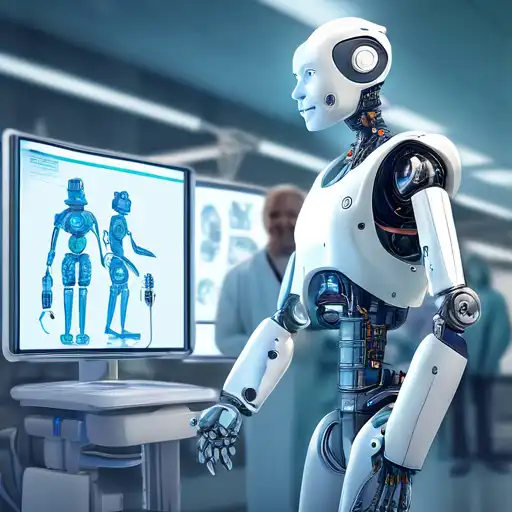The Dawn of a New Era in Healthcare
Robotics in healthcare is not just a futuristic concept anymore; it's a present reality that's transforming the way medical professionals deliver care. From surgical robots to robotic prosthetics, the integration of robotics into healthcare is making procedures safer, more precise, and less invasive.
Surgical Robots: Precision at Its Best
One of the most significant advancements in medical robotics is the development of surgical robots. These sophisticated machines allow surgeons to perform complex procedures with unparalleled precision, reducing the risk of human error. The da Vinci Surgical System, for example, has revolutionized minimally invasive surgery, enabling faster recovery times and less postoperative pain for patients.
Robotic Prosthetics: Restoring Mobility and Hope
Another area where robotics is making a profound impact is in the development of prosthetic limbs. Modern robotic prosthetics are equipped with sensors that mimic the natural movement of human limbs, offering amputees a new lease on life. These advancements not only restore mobility but also significantly improve the quality of life for individuals with limb loss.
Automated Pharmacy Systems: Enhancing Efficiency and Safety
Robotics is also transforming pharmacy operations through automated dispensing systems. These systems reduce medication errors, improve efficiency, and allow pharmacists to focus more on patient care rather than manual tasks. By automating the dispensing process, hospitals and pharmacies can ensure that patients receive the correct medication at the right time.
The Future of Robotics in Healthcare
The potential applications of robotics in healthcare are vast and varied. From telepresence robots that allow doctors to consult with patients remotely to robotic exoskeletons that help patients regain mobility, the future of healthcare is undeniably intertwined with robotics. As technology continues to evolve, we can expect to see even more innovative solutions that will further enhance patient care and outcomes.
For more insights into how technology is shaping the future of healthcare, explore our technology trends section.
Challenges and Considerations
Despite the numerous benefits, the integration of robotics into healthcare also presents challenges. High costs, the need for specialized training, and ethical considerations are just a few of the hurdles that need to be addressed. However, with ongoing research and development, these challenges can be overcome, paving the way for a new era in healthcare.
Robotics in healthcare is indeed a game changer, offering unprecedented opportunities to improve patient care, enhance efficiency, and save lives. As we continue to explore the possibilities, one thing is clear: the future of healthcare is robotic.
